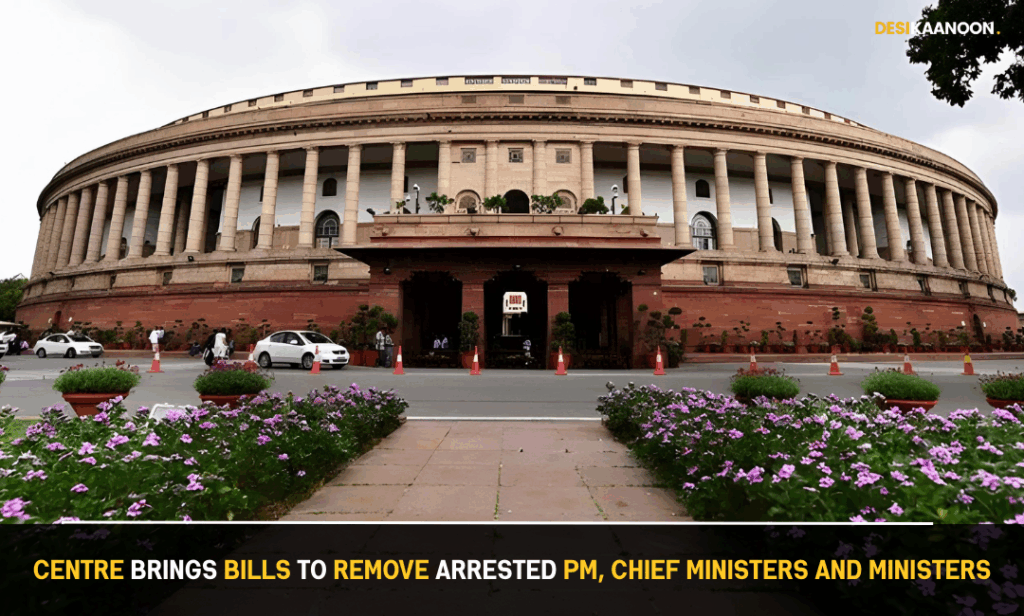Akhya Pandey
On 21st August 2025, the Lok Sabha saw the Government introduce three important pieces of legislation aimed at ensuring that individuals holding the highest executive offices cannot continue in power if they are kept in custody on serious criminal charges.
The first of these, the Constitution (130th) Bill, 2025, proposes changes to Articles 75, 164 and 239AA of the Constitution of India, providing that a Prime Minister, Chief Minister or Minister who remains under arrest for thirty consecutive days will automatically lose office on the thirty-first day. Two other bills –one amending the Government of Union Territories Act, 1963 and another altering the Jammu and Kashmir Reorganization Act, 2019 -carry the same principle into those territories. Home Minister Amit Shah, while moving the bills, argued that the public has a right to expect higher standards from elected leaders, pointing out that even civil servants are deemed suspended if they remain in custody beyond a fixed period.
The move, however, has triggered a storm. Opposition members accused the Government of trying to arm itself with a political weapon, warning that arrests and prolonged custody could be misused to dislodge elected leaders without any conviction. They stressed that the principle of presumption of innocence lies at the heart of criminal law and cautioned that the new law, if passed, might allow agencies to achieve through arrest what cannot be achieved through a trial. Legal observers too are weighing in, recalling that in Lily Thomas v. Union of India (2013) 7 SCC 653 the Supreme Court had held that legislators convicted of certain offences would lose their seats immediately, but the Court has consistently underlined that such disqualifications must flow from clear statutory provisions and not from executive discretion. The concern now is whether automatic removal after custody, without conviction, crosses that constitutional line.
All three bills have been referred to a Joint Parliamentary Committee for detailed study. The Committee is expected to take evidence from constitutional experts and former judges before submitting its report. Until then, the legal community remains divided: some hail the proposal as a long-overdue step to curb the criminalisation of politics, while others see in it the danger of upsetting the delicate balance between accountability in office and the fundamental rights of those who are yet to be found guilty. What is certain is that, if the bills clear Parliament, they are almost certain to be tested before the Supreme Court, where the boundaries of constitutional morality and political necessity will once again be drawn.
Instagram: Click Here.
LinkedIn: Click Here.
For Collaboration and Business: Click Here.

